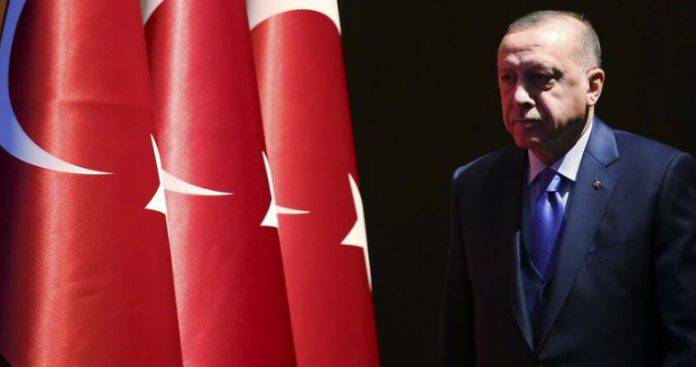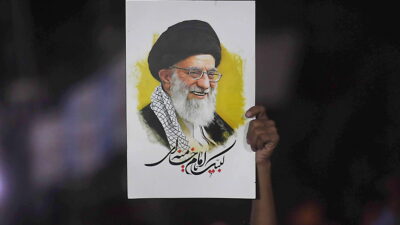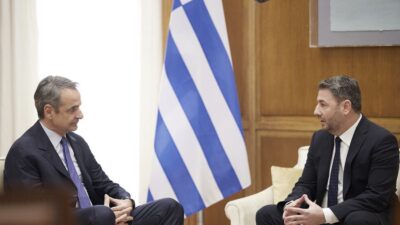Kostas Grivas: Turkey seeks to become a leader of an Islamic “Non-Aligned Movement”
18/10/2020
In a previous article on SLpress, we mentioned the potential role that Turkey can play in US geostrategy as a deterrent to China in Asia. We have argued that Turkey has managed to position itself as the apple of discord between the West and the emerging Eurasian cluster.
We had characterized this loose Eurasian cluster of countries, at the core of which is the Russia-China system, as Multi Power. It is the generator of a new bipolar international system, which is slowly beginning to take shape. Especially important is the fact that this Eurasian Multi Power still has an internal fluid identity.
The competition between its members for who will have the upper hand is intense and constant. This competition starts with the Moscow-Beijing relationship, but extends to all other actors. Thus, Pakistan, for example, on the one hand is a strategic ally of China, but on the other hand, fears that it may become its controlled appendage. So it is trying to get negotiating papers against Beijing. One of the ways its seeks to achieve this is to strengthen ties with Turkey.
It seeks to create a solid geopolitical stature in order to be able to negotiate with a stronger hand its place in this new bipolar system. This was evident from the absolute identification of the two countries with Azerbaijan, where Pakistan went so far as to threaten tiny Armenia with its nuclear arsenal, with which under normal circumstances it has nothing to bicker over.
Turkey and geopolitical system
In other words, we are facing not only Turkey, but an entire geopolitical system in which Turkey is participating. That is, in this transitional phase that the international system is in today, there is a tendency in the two large, vague, and still fluid geopolitical masses of Eurasia and the Western world to create individual ad hoc groupings. Their goal is to optimize the negotiating hands of the participating countries, so as to best shape their position and role in the two major formations.
Consequently, Ankara’s policy of positioning itself as an apple of discord between the West and the East is in line with the aspirations of countries such as Pakistan or Iran and of course the Turkic-speaking countries of Central Asia to gain some leverage, through unpredictability and unbound policy. This is despite the fact that they are part of the Eurasian group.
In a sense, then, we could say that Turkey aspires to lead a coalition that bears similarities to the historic Cold War Non-Aligned Movement. This new movement will consist of the Muslim countries of Central and South Asia. And indeed it is Turkey that can lead this intermediate world, between the two great geopolitical formations.
The much stronger Pakistan cannot lead because Turkey is in the right geographical and political position. Also, as a member of NATO it has close relations with the Western world and does not have any stronger force around it. By contrast, Pakistan is in the shadows and at odds with the much stronger India.
So we are facing not just a new Turkey, which has changed qualitatively compared to the Turkey of the past decades, but a whole system of countries with a potential, if not informal, leader Turkey. And of course the Western powers by no means want to lead to a complete rupture with it. Because then they will simply lead Turkey into the arms of the rival formation and together with it the Muslim countries that work with it.
An anti-Turkish axis
Consequently, the policy of absolute identification with the West, to a degree of self-elimination, pursued by Greek foreign policy, believing that it will be rewarded while “unruly” Turkey will be punished, is simply unrealistic. This does not mean that Turkey cannot be dealt with by Greece. Of course it can. In fact, there is a huge scope for action in Greek foreign policy, if it decides to operate in today’s world and not in the one that, perhaps, was valid in the past.
Among other things, what can be done is to create an anti-Turkish alliance, consisting of countries that clearly have competitive relations with Turkey and not mixed ones. And these are France and a number of Arab countries, such as Egypt, Saudi Arabia and the United Arab Emirates. Also, small countries, such as Armenia, can participate.
And the natural leader of this group will be Greece and not the much stronger France, precisely because in the Muslim Central Asian group the natural leader is Turkey and not Pakistan. That is, primarily for geographical but also political reasons. In addition, this grouping can be the basis of a policy of unpredictability, which Greece needs at the moment, in order to negotiate in the best possible way its position in the future bipolar candidate world, when and if it is formed.





